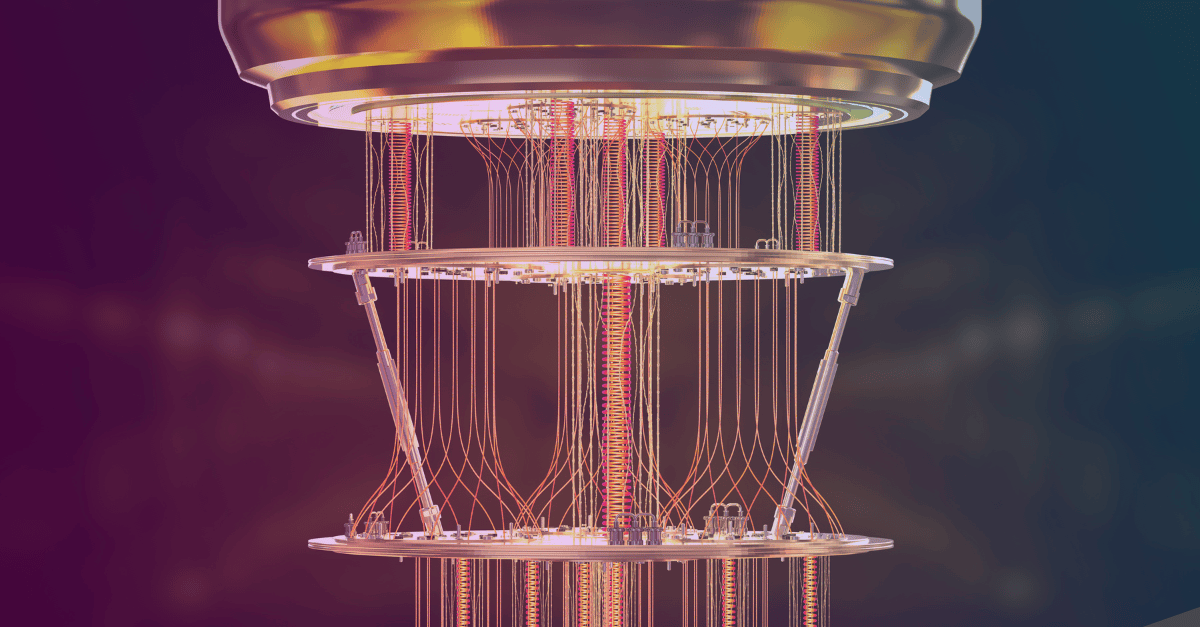
Luxembourg’s Quantum Leap: The Impact of Quantum-enabled Supercomputers on the Future
Imagine a world where computers can solve problems in seconds that would take today’s fastest supercomputers thousands of years. This is the promise of quantum supercomputers: revolutionary machines that can reboot how we think about everything from medicine to national security. According to Nielsen and Chuang, though quantum computers are still in their infancy, considerable progress is nonetheless being made toward the realization of their full potential. As the progress it has been undergoing in these aspects continues, an explanation of what quantum computing is and what it will be able to do is increasingly important with respect to societal benefit.
Table of Contents
October 29, 2024.
How Quantum Computers Differ from Classical Computers
What is so special about quantum supercomputers? The unique capabilities of quantum supercomputers can be best explained by how normal computers work. Today’s computers are based on bits, essentially the microscopic versions of switches that can either be turned on or turned off, represented as 1s and 0s. This binary system, as it’s known, is the basic language behind every form of computing, from the smartphone in your pocket to the servers that run the internet. You can think of a bit as something like a light switch that is either full on, 1, or full off, 0.
While quantum computers depend on the use of quantum bits or qubits. Unlike bits, qubits are able to express 1 and 0 simultaneously due to a unique property called superposition, by Preskill (2018). It’s kind of like a dimmer switch: it can be on or off or it can be anywhere in between. That turns out to be roughly how a qubit works. The capacity to perform many calculations all at once is enabled. In addition, qubits can become entangled-a quantum property where they are interconnected in such a way that the state of one qubit influences the instant state of another, irrespective of the distance between them (Nielsen and Chuang, 2010). These properties enable quantum supercomputers to process information in ways which have exponential increases in speed and complexity compared with classical computers.
Key Concepts: Qubits, Superposition, Interference, and Entanglement
• Quantum Bits: Qubits can be in superposition, in other words, both 0 and 1 simultaneously-and this fact is fundamentally different from classic bits. This fact enables quantum computers to perform many calculations in a single pass through the program and therefore could have exponentially great processing power. As such, for example, this can enable quantum computers to analyze huge volumes of data, such as datasets from climate modeling, at an incredibly fast pace.
• Superposition: Superposition is one of the fundamental principles of quantum. Superposition is a quantum mechanical attribute in that a particle could be in all states at the same time. In quantum computing, it simply means a qubit can take multiple states at the same time, allowing for more functionality at higher speeds. For Preskill (2018), this could include all possible routes a quantum computer can take at the same time instead of taking only one path at a time in trying to find the fastest route out of a maze.
• Interference: Quantum interference is a result of the combination of different possible states of a qubit in superposition. Sometimes this combination amplifies or cancels them out. This property is utilized in quantum algorithms by constructively interfering with desired states and destructively interfering unwanted ones to raise the probability of reaching the desired solution. Deutsch and Jozsa showed, in 1992, interference as one of the main mechanisms which allows quantum computers to be more powerful than classical ones for solving certain problems.
• Entanglement: Quantum entanglement is a phenomenon wherein two qubits become linked; thus, the state of one influences the state of the other in an instant, even across vast distances, according to Nielsen and Chuang (2010). This property can be used in creating highly secure communication channels and enhancing computational powers. For instance, entangled qubits could be used for quantum cryptography, whereby, for instance, the interception of secret communications by any third party would be virtually impossible, as spelled-out by Bennett and Brassard 1984: The Impact of Quantum Supercomputers on a Country
What does this advanced technology mean for nations and their people?
The implications are immense, touching nearly every part of modern life:
1. Scientific Research: Quantum supercomputers will significantly accelerate scientific research and development in physics, chemistry, and biology. For instance, they will be able to implement simulations of complex molecules for drug discovery, thus enabling faster means toward the discovery of new medicines. This might even change healthcare, as has been argued by Dowling and Milburn (2003), thus enabling the future medical treatment of diseases where either treatment is more difficult or not possible at all today.
2. Cryptography and Security: Quantum computers could break most of the current cryptographic systems in use today that secure communications, financial transactions, and sensitive data, according to Shor (1994). That sounds alarming, but the good news is it works the other way, too: the technology can be used to create new, unbreakable codes. A country with advanced quantum computing would be in a better position to security considerations and ensure that its citizens would not lose their information, as was discussed between Bennett and Brassard.
3. Economic Growth: Quantum computing can revolutionize industries such as finance, logistics, and manufacturing by bringing optimal solutions to complicated processes that, classically, may be too time-consuming or expensive to solve. As for example, quantum algorithms will improve supply chain management; this would reduce the cost and increase the efficiency of a nation’s economy, as pointed out by Montanaro (2016). This may give rise to new industries and jobs, therefore an increase in economic growth.
4. Impact on the Environment: Climate change is among the most brought-forward problems in the modern century. Quantum supercomputers might serve to enhance climate modeling, wherein scientists are making more accurate predictions and, correspondingly, better strategies to oppose global warming according to Preskill (2018). Such computers could be used in the discovery of new materials for more friendly sources of energy, a guarantee toward less carbon footprint by a country and, thus, toward a sustainable future.
5. Artificial Intelligence and Machine Learning: Quantum computing is going to accelerate AI development and machine learning further, in a manner such that it will be a vital tool in the solution to some of society’s most difficult problems. Together, they are going to enable important advances in personalized medicine, for example, independent vehicles, and big data analysis. Quantum computing will be an integral means toward breakthroughs now out of reach with classical computing through vastly speeding up computations and enabling more complex algorithms to work.
6. Ethics and Society: As this technology continues to advance, other challenges it presents are disruption in job markets through automation or the digital gap. All these are the challenges nations will have to take into consideration in light of equal opportunities to harness benefits accruing from quantum computing and training workforces.
Quick Facts About Quantum Computing
Here are a few key facts that outline the potential and challenges for quantum computing:
1. Quantum Speedup: The fact that quantum computers can factor the huge numbers into their prime factors much faster than the classical computation for the same problem. Create Date, according to Shor (1994), offers great effects on cryptography and security. The fact that combinatorial problems-that is, the identification among a discrete set of objects of an optimal element-can be performed in polynomial time extends its applicability to optimization, logistics, and artificial intelligence.
2. Quantum Supremacy: Google announced quantum supremacy in 2019 where it achieved some tasks in 200 seconds, which the most powerful supercomputer in this world could only do in thousands of years, Arute et al. (2019).
3. NISQ Era: The present era is that of the noisy intermediate scale quantum (NISQ), where quantum computers are much strong yet inherently noisy and prone to errors. As Preskill said, in 2018, “Researchers are trying to reduce the level of noise in their systems, hence making quantum computers more functional”.
4. Quantum Algorithm: There are specific algorithms for quantum computers which base their development onto the properties of quantum. For example, Shor’s algorithm factors large numbers in a very efficient way; this could break all but the most advanced forms of public-key cryptography in use today.
5. Quantum Cryptography: Quantum Key Distribution, QKD, utilizes the principles of quantum mechanics to devise ultra-high security communication channels which, in principle, cannot be wiretapped according to Bennett and Brassard (1984).
6. Drug Development Applications: According to Montanaro (2016), this same ability of quantum computing to simulate the structure of molecules at their quantum level will go a long way in hastening drug discovery and developing new materials.
7. Challenges and Limitations: Quantum computers remain in infancy, whereby a few major challenges and limitations persist along the line of various quantum technologies. For example, operational requirements, error rates, and scalability. They are expensive to build and maintain in both ways.
8. Global Competition: Quantum research has been identified as a strategic priority by many countries, including the US, China, and the European Union-all of which are investing heavily within their borders. The race to quantum supremacy is equally about national security and economic dominance as it is about technological advancement.
Luxembourg’s Position in Quantum Computing
With its strategic focus on innovation and technology, Luxembourg is positioning itself as a key player for preparing for a quantum future. In addition to pure production work, the Luxembourg approach emphasizes the research and development of quantum software and algorithms that are internationally decisive for mastering quantum computing.
The national supercomputing center serves as an important cornerstone in this action plan, operating the supercomputer MeluXina. LuxProvide prepares Luxembourg for the quantum era by offering top-tier computational resources that support research in quantum algorithms, quantum cryptography, and related fields. In preparation for Coupling a Quantum Computer to MeluXina, LuxProvide is supporting the ecosystem by implementing state-of-the-art quantum simulators, using the accelerated computing capabilities of MeluXina for software/algorithm development.
Now it’s playing a vital role by providing the solid ground needed to host Luxembourg’s Quantum Computer, where LuxConnect will be the major data center in the country. This will surely be one of the key elements in further research and development into quantum computing. Such initiatives as, the University of Luxembourg, and the Luxembourg Institute of Science and Technology-LIST further evidence the country’s determination to foster a high-tech ecosystem by exploring quantum research and its applications. Moreover, in efforts to advance quantum technologies, Luxembourg has also joined a variety of strategic initiatives.
Among others, the QCI Initiative and Lux4QCI have been the most relevant projects regarding quantum communication infrastructure and the coordination of different stakeholders to further promote quantum technologies under the framework of the Luxembourg quantum strategy.
These related initiatives combined make Luxembourg the vanguard in quantum technology development and deployment across the Union, thereby contributing regionally and globally to such developments.
Conclusion
As long as quantum-enabled supercomputing continues to evolve, so will the leading position of Luxembourg in this revolution, notably with heavy investment in research and development. If Luxembourg builds up the infrastructure that supports these quantum innovations, then it is not only preparing for a quantum future but shaping it. How will your organization or nation prepare to harness this transformative technology? The future is quantum, and just the beginning of this journey has started.
Ready to push the boundaries of digital innovation?
Reach out to us now and let’s make it happen.
ul.px1745024057l@ofn1745024057i1745024057
(+352) 85 99 14
OFFICES
ATRIUM BUSINESS PARK
31, Rue du Puits Romain
L-8070 Bertrange
Luxembourg
MELUXINA
SUPERCOMPUTER
LUXCONNECT DC2
3 Op der Poukewiss
7795 Bissen
Luxembourg


